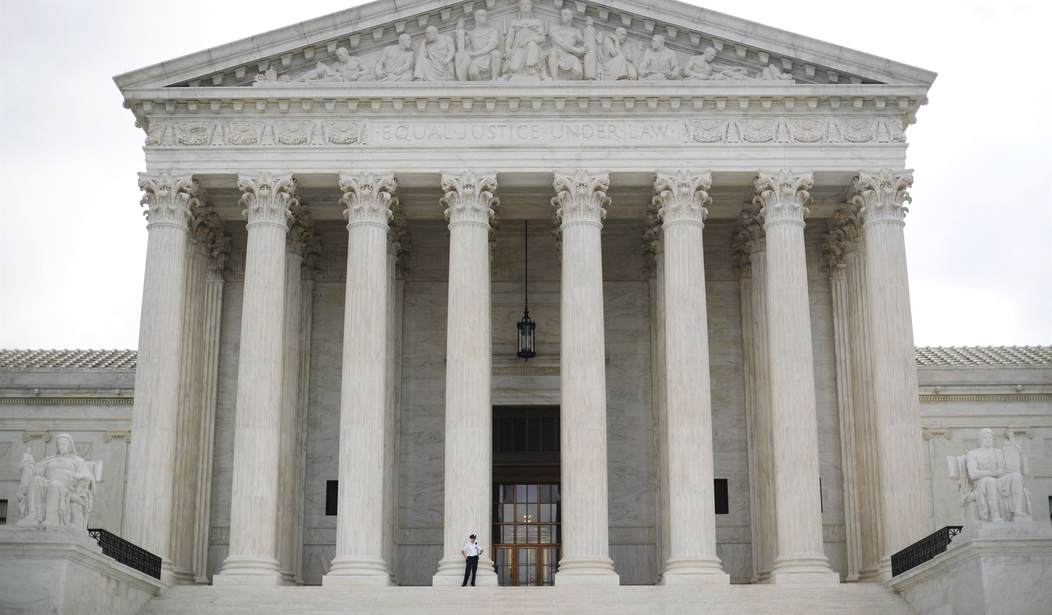Legal experts John Yoo and James Phillips have recently argued that 2019 could be a historic year of precedent-setting Supreme Court cases because this is the first time since 1936 that the Court has had a consistent conservative majority. This Court could return us to an era of judicial restraint where the majority of the Justices affirm that it is not their place to create or change the law, only to fairly enforce the law that already exists.
Although Yoo and Phillips discusse the implications of this development for administrative agencies and the separation of powers, there is one more area of law that could be dramatically affected by this year’s Court: the Constitution’s religion clauses. In particular, this Court could bring clarity to the establishment clause case law.
The First Amendment proclaims that Congress shall make no law respecting an establishment of religion (the establishment clause) or prohibiting the free exercise thereof (the free exercise clause). Since the middle of the 20th century, the Supreme Court has been divided on how we should interpret the establishment clause. Different justices have proposed different tests, and these standards have been used inconsistently, creating an unfortunate amount of confusion and costly litigation.
Most First Amendment scholars agree that the case law surrounding the establishment clause needs clarification. Ed Whelan nicely described this sentiment, calling the current state of the law a “sorry mess.”
May governments acknowledge the role religion plays in some communities and make appropriate accommodations for religious schools and charities, as long as no one is being “coerced” to violate his or her core beliefs? Or must the government meticulously avoid every mention of religion and bulldoze even historic references to the divine, to avoid the appearance of “endorsing” one view over another?
Recommended
We could soon have clarity on the issue, ending decades of confusion. A case titled The American Legion v. American Humanist Association will be argued before the Court next month, on February 27. My firm First Liberty Institute, together with Jones Day, represent The American Legion in defense of a nearly-100 year old veterans memorial dedicated to 49 local men who died in World War I. Our opponents argue that the memorial should be defaced or destroyed to remove its cross-shape.
In our brief, we argue that the court should return to the historical understanding of what the establishment clause meant to the Founding Fathers.
History shows that the Founders were concerned with governments’ power to coerce religious belief, observance, and financial support. As described by First Amendment scholar Michael McConnell, the Church of England and many of the new colonies at the time coerced belief in six ways: “(1) control over doctrine, governance, and personnel of the church; (2) compulsory church attendance; (3) financial support; (4) prohibitions on worship in dissenting churches; (5) use of church institutions for public functions; and (6) restriction of political participation to members of the church.” These forms of coercion were the main concerns that the establishment clause was designed to address.
The actions of our early leaders also indicate the establishment clause was never meant to prohibit mere acknowledgements or accommodations of religious belief. George Washington and other early presidents acknowledged the Almighty in their inaugural addresses and in their Thanksgiving proclamations. Mere days after approving the First Amendment, the First Congress provided for the appointment of chaplains.
Even our founding document, the Declaration of Independence, grounds its claim to independence in the truth that all men “are endowed by their Creator with certain unalienable Rights.” Our history is replete with references to God and religious symbolism.
Both religion clauses of the First Amendment are concerned with protecting religious freedom in different ways. One provides the positive guarantee that individuals may freely exercise their beliefs, and the other provides the converse guarantee that they will not be coerced to violate their beliefs.
2019 may well restore the appropriate balance, returning the Establishment Clause to its proper place of being concerned with the serious matter of religious coercion rather than catering to mere offense at the sight of religious imagery. After all, no one has an absolute right to be free from exposure to ideas they find offensive or disagreeable.
The fact that a nearly 100-year old war memorial dedicated to 49 brave men who died for this country is in jeopardy demonstrates precisely why we need the Court’s help now, more than ever, to return reason and sanity to the Constitution’s religion clauses.
Stephanie Taub is Senior Counsel to First Liberty Institute, a non-profit law firm dedicated to defending religious freedom for all. Read more at FirstLiberty.org.

























Join the conversation as a VIP Member